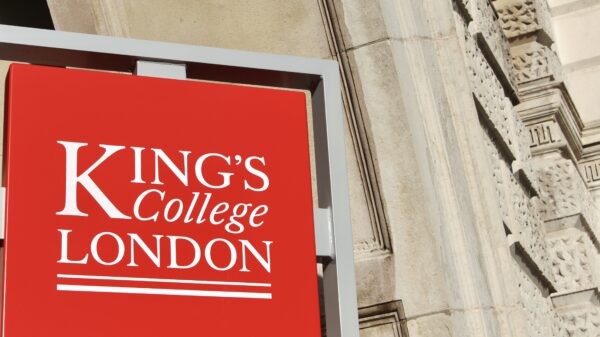ON THE eve of the biggest education demo this year, Roar asked a few King’s students why they are marching.
1. Sophie Leseberg Smith, History, 2nd year
The problem with university fees is multi-faceted. Not only do the high cost of these fees present a problem for those paying, but they also act as a deterrent for those who cannot afford, but are deserving of, a university place.
The hardest hit of this group of students are those whose parents’ income comes in at just above qualifying for a bursary but who cannot afford to help with their children’s educational ambitions.
Everyone should be entitled to be able to make an educated decision on their life, starting with the ability to be educated without the constraints of their families’ economic position.
Many argue that freeing up the university system would see an unrealistic increase in applicants for university places, which would undermine the value of degrees as people would rush to grasp something that is valued as lesser because it is free.
This is ridiculous; if a person were to apply to a university, the university would reserve the right to decide whether this person should be eligible for a place at their institution, as has always been the case.
2. Kasia Blackman, European Studies, 4th year
It is argued that public funding of education is financially unsustainable. Yet, Germany, Switzerland, the Netherlands and Scandinavian countries all offer high quality university education while charging students little or nothing.
What is financially unsustainable is the £9,000 fees system. So far it has saved the government very little money and it is expected that only 45% of the debt it has created will actually be paid back.
More importantly, the £9,000 fees are unjust. Far too many low-income families cannot afford to send their children to university.
As a result, a significant number of young talented people are denied access to a university education because of financial restrictions.
I am marching for free education now, as I did two years ago, because I believe that higher education should be a right, not a privilege.
3. Sam Bysh, Philosophy and Physics, 2nd year
High tuition fees have reduced the number of working class university applicants. Many who choose to study have to work to sustain themselves, as student loans rarely cover the cost of living. This should not be the case.
Ensuring staff are fairly paid was the best justification for fees; nothing has changed.
Fundamentally, higher education should be a right. Nobody would support removing the right to free education up to 18 years of age, so why should it be restricted beyond this age?
Why should education be limited to the first quarter of life? It should be for all ages, not just for the privileged.
A society with better access to education is more equal and more socially mobile. That is the society that I want to live in.
4. Zeead Yaghi, Neuroscience, MSci
As an international student, my fees cost about 150% more than that of my peers from the UK and the EU. Add that to the cost of living and what you end up with is a seriously ridiculous amount of money to pay for a one-year Master’s degree.
And it is not just me, but every single international student who I have had the chance to talk to about this have relayed to me similar financial concerns that they were having.
I am grateful to have been accepted to study at King’s, but my loan will probably take me ten years to pay back.
Without free or even affordable education, university students get shackled down by massive debts at a very young age, which jeopardises their future and restrict their liberties and choices.
5. Cat Denby, History, 2nd year
I come from a working class background, my parents made barely enough money to keep a roof over my and my little sister’s head.
I used to skip out on school trips, not because I was antisocial, but because my parents couldn’t afford it.
I was 15 years old when I first started saving for university and at this point fees were £3,000 a year: a cost that was expensive for someone like myself, but not unreachable.
All I really wanted to do was to leave the small town I grew up in and explore my own path of learning.
When I heard my fees would be £9,000 a year, I was in shock. I remember sitting with my mum at our kitchen table and wondering how such a thing was possible. But I did it anyway; I swallowed it and just paid my £9,000.
After a year of being at university, I have realised that I should have stood up for myself and all of the amazing people I have met who are in the same boat as me.
This is why I am choosing now to stand up for my friends and myself. I urge you all to do the same.
King's College London. Award-winning student newspaper, a platform to share your story, and a publication that holds entities accountable when no one else dares.



















